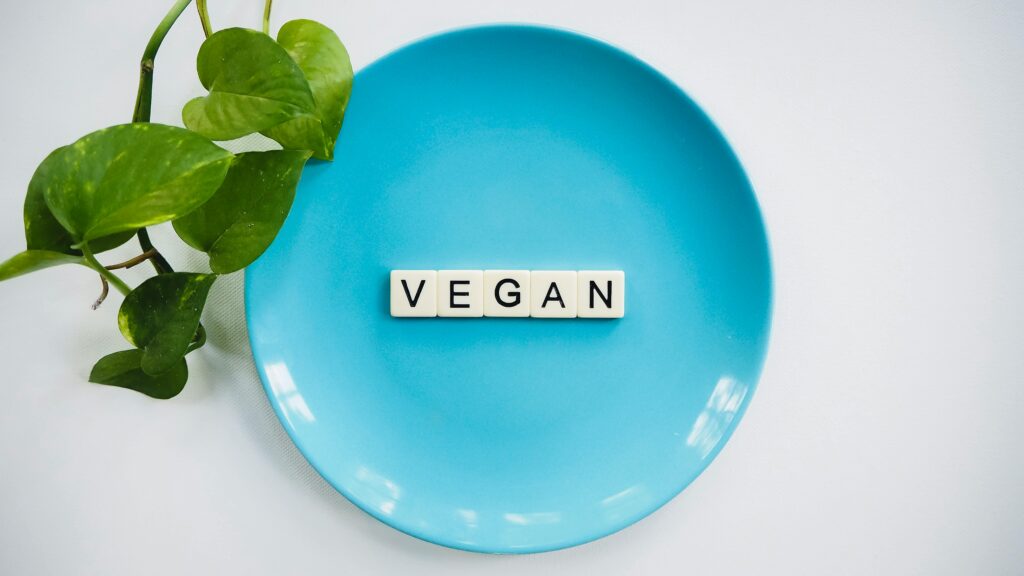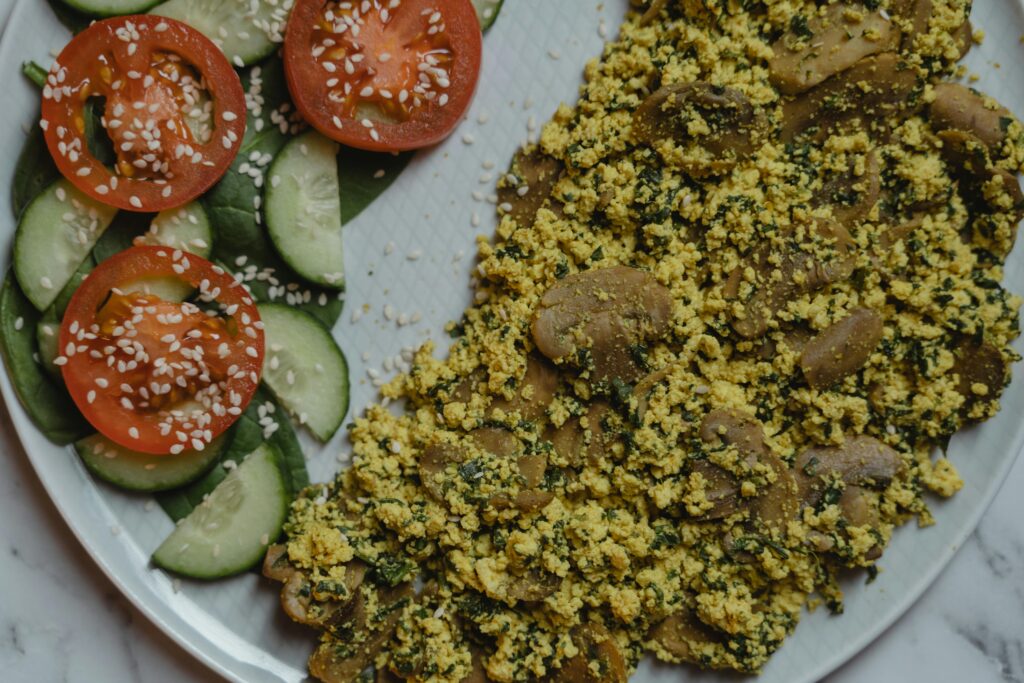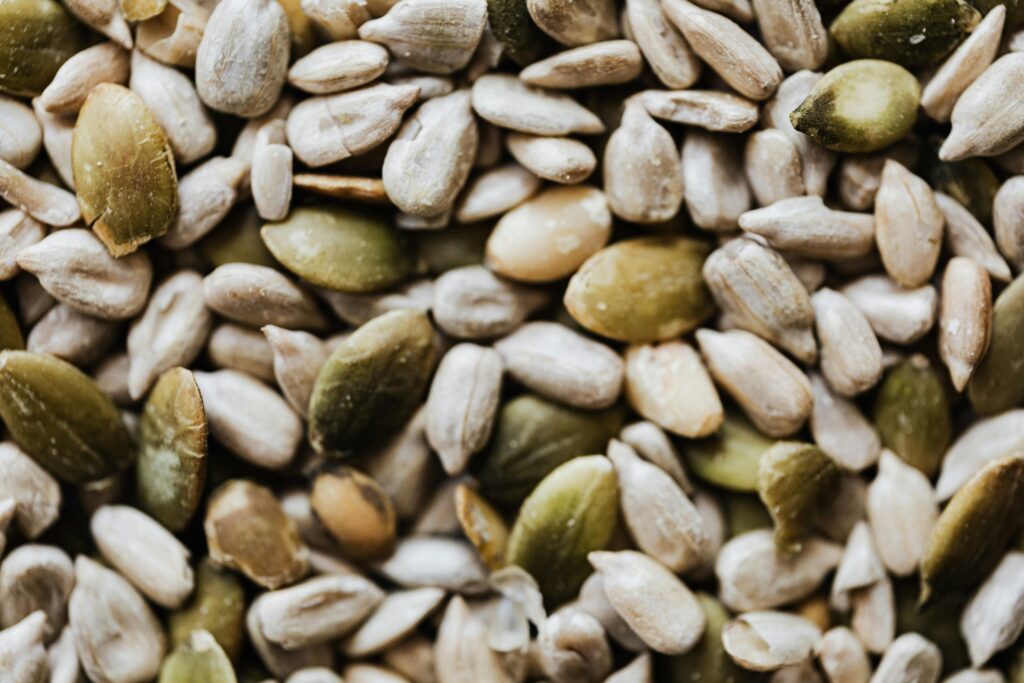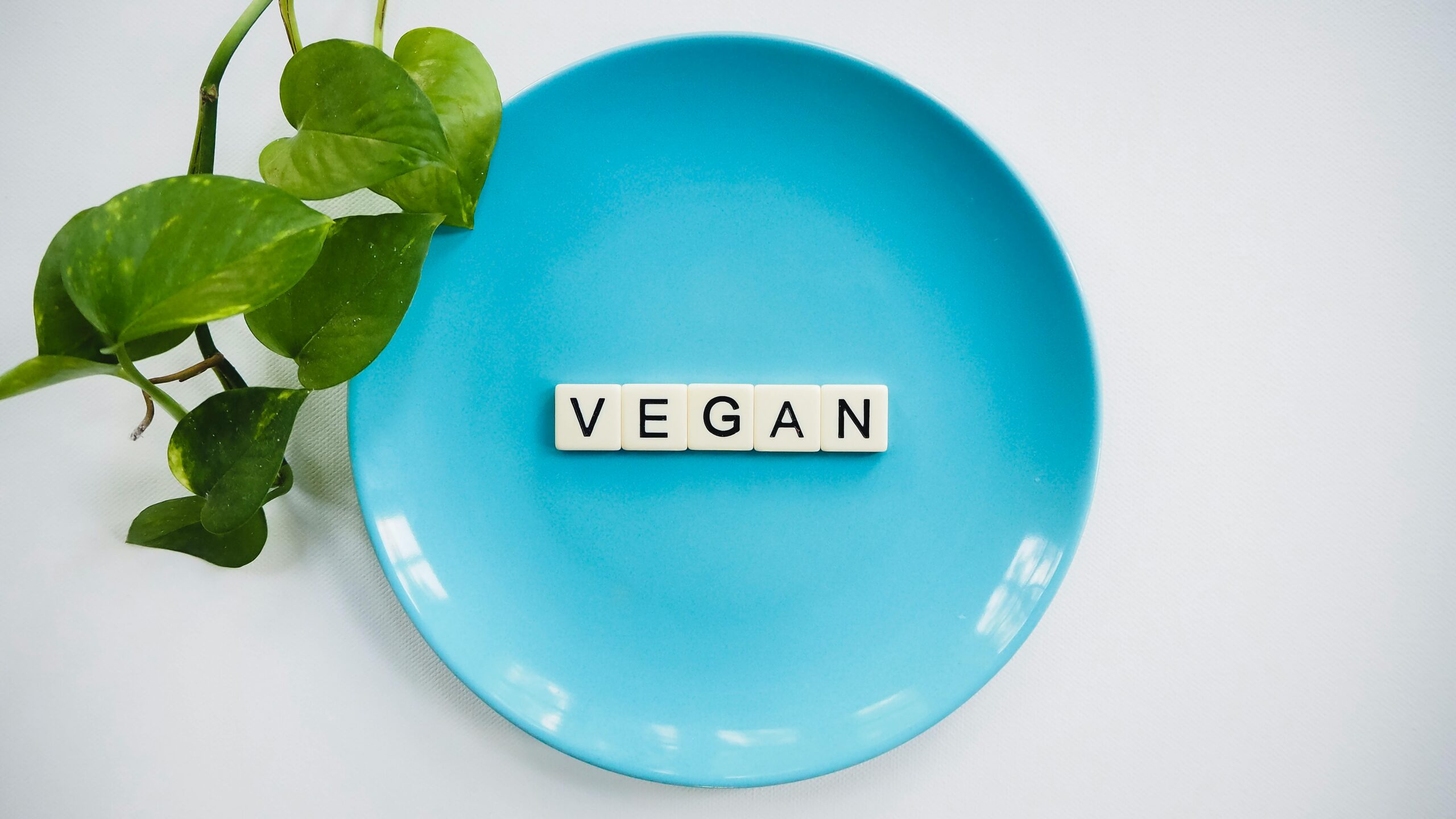
If you’re new to veganism, you may be wondering how you can get enough protein in your diet without meat, eggs, and dairy. Fortunately, there are plenty of vegan protein sources that can help you meet your daily protein needs. In this complete guide, we’ll cover everything you need to know about vegan protein, including the benefits of plant-based protein, high-protein vegan foods, protein-rich vegetables, legumes and lentils, vegan nutrition, meat alternatives, complete protein sources, vegan meal planning, and protein supplements.
Understanding vegan protein is essential for anyone who wants to follow a vegan diet. Plant-based protein has many benefits, including being low in saturated fat and high in fiber, antioxidants, and other essential nutrients. Vegan protein sources are also more sustainable and environmentally friendly than animal-based protein sources. Whether you’re a vegan athlete or just looking to improve your overall health, there are plenty of vegan protein sources that can help you achieve your goals.
Sources of vegan protein include a variety of plant-based foods, such as legumes, nuts, seeds, grains, and vegetables. High-protein vegan foods like tofu, tempeh, and seitan are also excellent sources of protein. Vegan meal planning can help ensure that you’re getting enough protein and other essential nutrients in your diet. Protein supplements can also be a convenient way to boost your protein intake if you’re not getting enough from whole foods.
Understanding Vegan Protein

If you’re following a vegan diet, you might be wondering how to get enough protein. Fortunately, there are plenty of vegan protein sources that can help you meet your daily protein needs. In this section, we’ll go over the basics of vegan nutrition and highlight some of the best vegan protein sources.
Vegan Nutrition Basics
A vegan diet excludes all animal products, including meat, dairy, and eggs. While it’s possible to get all the nutrients you need from a vegan diet, it does require some planning and attention to ensure that you’re meeting your nutritional needs.
Protein is an essential nutrient that your body needs to build and repair tissues, make enzymes and hormones, and support immune function. The recommended daily intake of protein for adults is 0.8 grams per kilogram of body weight. For example, if you weigh 68 kg (150 lbs), you would need about 55 grams of protein per day.
Complete Protein Sources
Complete protein sources contain all nine essential amino acids that your body needs to function properly. Some vegan sources of complete protein include:
- Quinoa
- Buckwheat
- Soy products (such as tofu, tempeh, and edamame)
- Chia seeds
- Hemp seeds
- Spirulina
Protein-Rich Vegetables
Many vegetables are also good sources of protein. While they might not contain as much protein as some other vegan protein sources, they can still contribute to your daily protein intake. Some protein-rich vegetables include:
- Broccoli
- Brussels sprouts
- Spinach
- Asparagus
- Artichokes
- Peas
Legumes and Lentils
Legumes and lentils are some of the best vegan protein sources. They’re also high in fiber, iron, and other important nutrients. Some legumes and lentils that are particularly high in protein include:
- Chickpeas
- Lentils
- Black beans
- Kidney beans
- Peanuts
Protein Supplements
If you’re having trouble meeting your daily protein needs through food alone, you might consider using a vegan protein supplement. Some common vegan protein powders include:
- Pea protein
- Soy protein
- Rice protein
- Hemp protein
When choosing a protein supplement, be sure to read the label carefully to ensure that it’s vegan-friendly and free from any animal products.
Sources of Vegan Protein

If you’re following a vegan diet, it’s essential to ensure that you’re getting enough protein. Fortunately, there are plenty of vegan protein sources available that can help you meet your daily protein needs. In this section, we’ll explore some of the best vegan protein sources and how you can incorporate them into your diet.
High-Protein Vegan Foods
There are many high-protein vegan foods that you can add to your diet. Here are some of the best options:
- Legumes and Lentils: Legumes and lentils are excellent sources of protein, fiber, and other essential nutrients. Some of the best options include black beans, chickpeas, kidney beans, and lentils. You can add them to soups, stews, salads, and more.
- Nuts and Seeds: Nuts and seeds are also great sources of protein. Some of the best options include almonds, cashews, chia seeds, flax seeds, hemp seeds, and pumpkin seeds. You can snack on them, add them to smoothies, or sprinkle them on top of salads or oatmeal.
- Protein-Rich Vegetables: Some vegetables are also high in protein. Broccoli, spinach, asparagus, and Brussels sprouts are all excellent options. You can add them to stir-fries, salads, or roasted vegetable dishes.
Meat Alternatives
If you’re looking for a meat alternative that’s high in protein, there are plenty of options available. Here are some of the best:
- Tofu: Tofu is a versatile protein source that you can use in a variety of dishes. It’s high in protein and low in fat, making it a great option for those looking to maintain a healthy diet.
- Tempeh: Tempeh is another soy-based protein source that’s high in protein and low in fat. It has a nutty flavor and a firm texture, making it a great meat alternative in dishes like stir-fries and tacos.
- Seitan: Seitan is a protein-rich food made from wheat gluten. It has a meat-like texture and is often used as a meat substitute in dishes like sandwiches and stews.
Protein Supplements
If you’re struggling to get enough protein from whole foods, you may want to consider adding a protein supplement to your diet. Here are some of the best options:
- Pea Protein: Pea protein is a popular vegan protein supplement that’s made from yellow split peas. It’s high in protein and easy to digest, making it a great option for those with digestive issues.
- Hemp Protein: Hemp protein is another vegan protein supplement that’s made from hemp seeds. It’s high in protein, fiber, and essential fatty acids, making it a great option for those looking to maintain a healthy diet.
- Soy Protein: Soy protein is a complete protein source that’s made from soybeans. It’s high in protein and low in fat, making it a great option for those looking to build muscle or maintain a healthy weight.
Incorporating these vegan protein sources into your diet can help ensure that you’re meeting your daily protein needs. Whether you’re a vegan athlete or just looking to maintain a healthy diet, there are plenty of options available to help you reach your goals.
Vegan Meal Planning

When planning a vegan meal, it’s important to make sure you’re getting all the necessary macronutrients. This means balancing your intake of protein, carbohydrates, and fats to ensure you’re meeting your daily requirements.
Balancing Macronutrients
Protein is an essential macronutrient that is often a concern for vegans. However, there are plenty of vegan protein sources, including legumes, lentils, tofu, tempeh, and seitan. It’s important to include a variety of these protein sources in your meals to ensure you’re getting all the essential amino acids your body needs.
Carbohydrates are also important for energy, but it’s important to choose complex carbohydrates like whole grains, fruits, and vegetables rather than simple carbohydrates like sugar and refined grains. Complex carbohydrates provide sustained energy and are also rich in fiber, vitamins, and minerals.
Fats are another essential macronutrient, but it’s important to choose healthy fats like those found in nuts, seeds, avocados, and olive oil. These fats are important for brain function, hormone production, and nutrient absorption.
Meal Prep Strategies
Meal prep is a great way to ensure you have healthy vegan meals ready to go throughout the week. Start by planning out your meals for the week and creating a shopping list. Then, spend a few hours prepping ingredients like chopping vegetables, cooking grains, and marinating tofu.
Batch cooking is another great strategy for meal prep. Cook a large batch of soup, stew, or chili and portion it out for the week. You can also cook a large batch of grains like quinoa or brown rice and use them in different meals throughout the week.
Finally, don’t forget about snacks! Having healthy vegan snacks on hand can help you avoid reaching for less healthy options. Some great vegan snack options include fresh fruit, raw veggies with hummus, and roasted nuts.
By balancing your macronutrients and using meal prep strategies, you can ensure you have healthy and delicious vegan meals ready to go throughout the week.
Plant-Based Protein Benefits
If you’re considering a vegan or plant-based diet, you may wonder if you can get enough protein. The good news is that there are plenty of plant-based protein sources that can provide all the protein you need. In fact, a plant-based diet can offer several benefits over a meat-based diet.
Here are some benefits of plant-based protein:
- Lower in saturated fat: Plant-based proteins are generally lower in saturated fat than animal-based proteins. A diet high in saturated fat can increase your risk of heart disease and other health problems.
- Higher in fiber: Plant-based proteins are often higher in fiber than animal-based proteins. Fiber is important for digestive health and can help you feel full and satisfied after meals.
- Rich in nutrients: Plant-based proteins are often rich in vitamins, minerals, and other nutrients that are important for overall health. For example, legumes like lentils and chickpeas are high in iron, folate, and potassium.
- May reduce inflammation: Some studies suggest that a plant-based diet may help reduce inflammation in the body. Chronic inflammation has been linked to several health problems, including heart disease, diabetes, and cancer.
- May help with weight management: Plant-based proteins can be a great option for those looking to manage their weight. They are often lower in calories than animal-based proteins and can help you feel full and satisfied after meals.
Overall, plant-based proteins can be a healthy and sustainable option for those looking to increase their protein intake. With a bit of planning and creativity, you can easily meet your protein needs on a vegan or plant-based diet.
Frequently Asked Questions

What are the best plant-based protein options for building muscle?
If you’re looking to build muscle on a vegan diet, it’s important to consume a variety of protein sources. Some of the best plant-based protein options for building muscle include soy products like tofu and tempeh, seitan, lentils, chickpeas, quinoa, and hemp seeds. These foods are not only high in protein but also contain other important nutrients like iron, calcium, and healthy fats.
How can vegans ensure they are getting complete proteins in their diet?
Complete proteins contain all nine essential amino acids that the body needs to function properly. While most plant-based protein sources are incomplete, it’s easy for vegans to get complete proteins by combining different protein sources. For example, you can combine rice and beans, or eat hummus with pita bread. Other complete protein sources include quinoa, chia seeds, and soy products like tofu and tempeh.
What are some high-protein vegan foods that aid in weight loss?
If you’re looking to lose weight on a vegan diet, it’s important to choose high-protein foods that are also low in calories. Some of the best options include leafy greens like spinach and kale, broccoli, mushrooms, legumes like lentils and chickpeas, and tofu. These foods are not only high in protein but also contain fiber and other important nutrients that can help you feel full and satisfied.
Which legumes and lentils are the highest in protein content?
Legumes and lentils are some of the best plant-based sources of protein. Some of the highest in protein content include soybeans, lentils, chickpeas, black beans, and kidney beans. These foods are versatile and can be used in a variety of dishes, from soups and stews to salads and tacos.
How can one create a high-protein vegan meal plan for optimal nutrition?
Creating a high-protein vegan meal plan is easy with a little planning. Start by choosing a variety of protein sources, like tofu, tempeh, lentils, beans, and quinoa. Then, add in a variety of vegetables and whole grains to ensure you’re getting all the nutrients your body needs. Aim to eat three meals and two snacks per day, and make sure to include a source of protein with each meal and snack.
What vegan protein supplements are recommended for a well-balanced diet?
While it’s possible to get all the protein you need from whole foods on a vegan diet, some people may choose to supplement with protein powder. Some vegan protein powders to consider include pea protein, rice protein, and hemp protein. It’s important to choose a high-quality protein powder that is free from additives and fillers. Always read the label and choose a product that is third-party tested for quality and purity.



